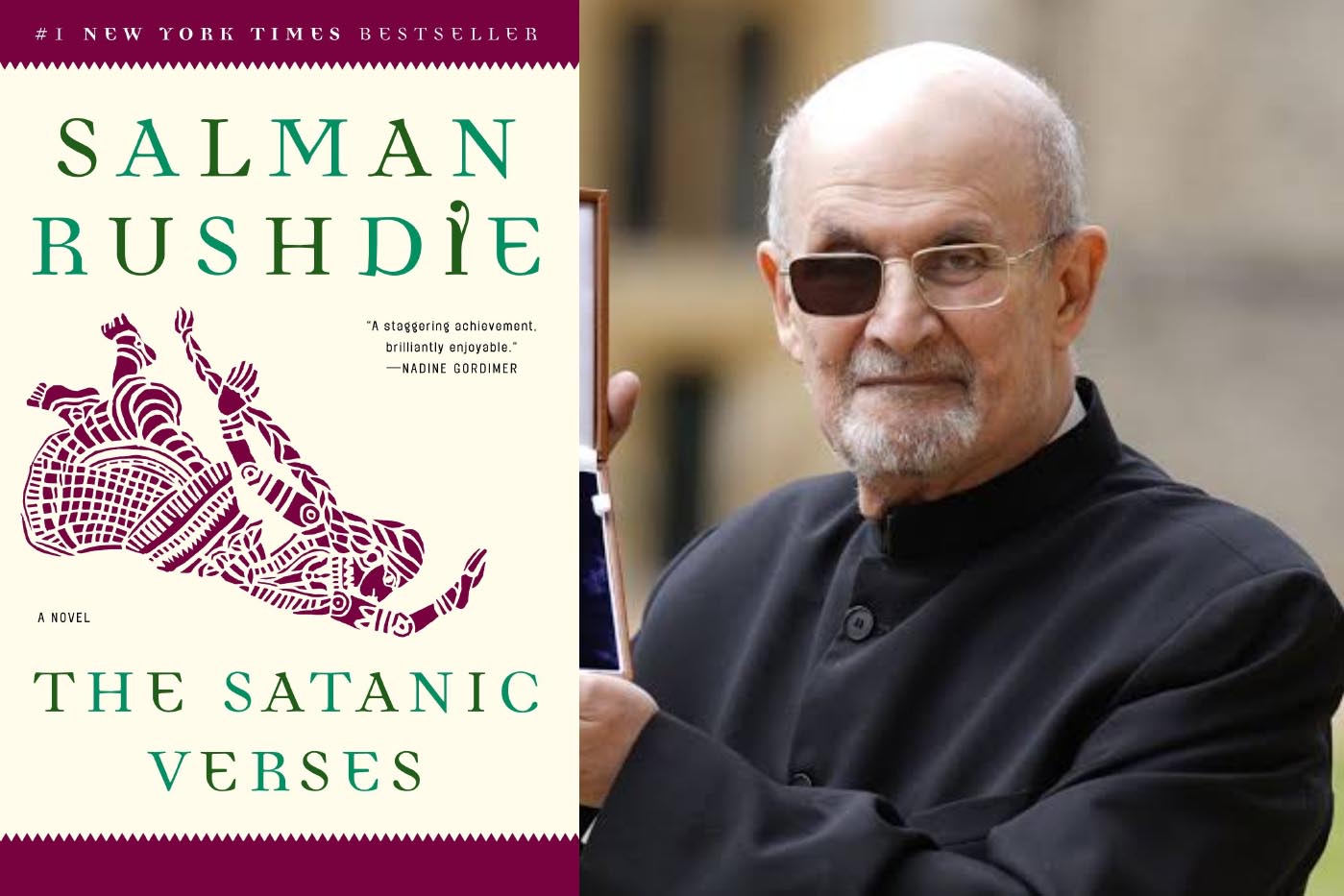Salman Rushdie, renowned for his provocative writings, faced a violent assault on Friday at the Chautauqua Institution in western New York. The 75-year-old author was targeted just before delivering a lecture when an assailant stormed the stage, reportedly punching or stabbing him during the introduction.
Witnesses, including Travis Seward from USA TODAY’s 10Best, confirmed the attack and subsequent arrest of the assailant.
Following the attack, Rushdie fell to the ground, prompting a swift response from a group of attendees who assisted him, possibly to mitigate the impact of his injuries. Emergency services quickly arrived, and Rushdie was airlifted to a nearby hospital, although his current condition remains undisclosed.
The Satanic Verses Authors Salman Rushdie
Salman Rushdie gained international notoriety for his novel “The Satanic Verses,” published in 1988, which sparked widespread controversy and led to numerous death threats against the author during the 1980s. Despite facing bans in several countries, Rushdie continued to write prolifically, with works such as “Midnight’s Children,” “Shame,” and the more recent “Quichotte,” which earned him critical acclaim and accolades over the decades.
The incident at Chautauqua Institution serves as a stark reminder of the ongoing tensions and risks faced by authors whose works challenge societal norms and provoke strong reactions. Authorities are investigating the attack while the literary community and supporters of free speech express concern over the safety and well-being of Salman Rushdie.
The attack on Salman Rushdie has reignited discussions about freedom of expression and the risks faced by writers who delve into contentious topics. Rushdie’s literary career has been marked by both acclaim and controversy, notably with “The Satanic Verses,” a novel that explores themes of religion, identity, and cultural conflict.
Born in India and educated in England, Rushdie’s writing often confronts complex issues within societies, drawing both admiration and condemnation. His works, including “Midnight’s Children,” which won the Booker Prize in 1981, and “Haroun and the Sea of Stories,” reflect his deep engagement with themes of post-colonialism and the blending of myth and reality.
Despite the challenges and dangers he has faced, Rushdie has continued to produce thought-provoking literature, with his latest works exploring modern-day themes through the lens of classical narratives. His upcoming novel, “Victory City: A Novel,” is highly anticipated and expected to continue his tradition of blending historical and fantastical elements.
As Salman Rushdie recovers from this latest incident, the global literary community stands in solidarity, reaffirming the importance of protecting freedom of expression and ensuring the safety of writers who challenge societal norms through their art. The attack serves as a stark reminder of the ongoing struggles faced by authors and artists worldwide, highlighting the need for vigilance and support in defending intellectual freedom.








Comment